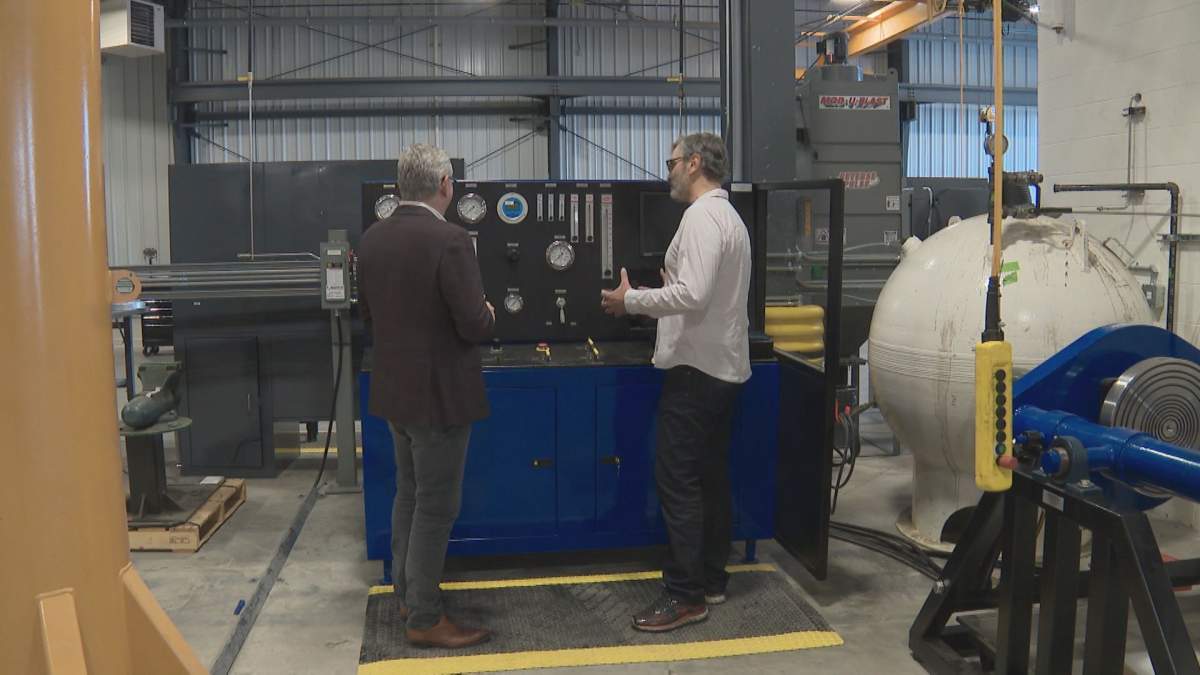Grande Prairie has always been busy. Agriculture and oil and natural gas have been pillars of the local economy for generations, and the population has been in a continuous climb for years, but what’s coming may lead to the biggest boom yet.

“There’s approximately $16.2-billion worth of announcements in this region,” said Grande Prairie Mayor Jackie Clayton.
“Grande Prairie has always been an entrepreneurial capital across Canada, and now it’s just bringing those future opportunities to light.”
READ MORE: Geothermal test success has Albertans excited for the future of the energy source
Among the projects under development: Terrapin Energy’s Alberta No. 1 geothermal site, and two multi-billion dollar petrochemical projects to tap into the hydrogen economy by Northern Petrochemical Corporation and Nauticol Energy.
“It’s just the right place, right time,” said Nauticol Energy CEO Mark Tonner.
While the final investment decision hasn’t been made yet, Nauticol Energy has already spent $35-million on its project. It aims to build a plant, complete with carbon capture technology, that will turn natural gas into methanol for export to Asian markets. Grande Prairie was chosen as the location due to the huge supply of cheap feedstock and rail lines linking the region to ports on the west coast.

Get breaking National news
“It’ll create 5000 jobs during construction, create 300 permanent jobs and every year it’s about $1.5-billion US dollars of manufactured product, value added product, that will leave our facility.”
Grande Prairie isn’t alone in seeing these types of investments in the new energy economy. Edmonton and the Industrial Heartland have also seen a number of announcements.
READ MORE: Alberta, Canadian governments sign deal for $1.3B hydrogen plant in Edmonton region
In June, Air Products announced its intention to build the world’s largest net-zero hydrogen facility in Edmonton, an investment pegged at $1.3 billion.
In October, Dow Chemical announced a plan to triple the size of its plastics facility outside of Fort Saskatchewan while upgrading it to net-zero. At $10-billion it’s the largest investment in Alberta in more than a decade.
READ MORE: Dow to build ‘net-zero’ petrochemicals facility in Fort Saskatchewan
These investments in Alberta are, in part, a product of government policies. The previous NDP government launched a petrochemical diversification program that offered tax credits and royalty rebates for major projects, the UCP kept portions of the program in place when it formed government in 2019, and also dramatically reduced the corporate tax rate.
“I’ve always believed that diversification and the energy sector are not opposed to one another, the two are linked together,” Premier Jason Kenney told Global News in a year end interview.
“I think it’s going to be an incredibly strong economy over the next few years as we put the pedal to the metal on diversification while leveraging our great natural resources.”
A strong economy that Grande Prairie Mayor Jackie Clayton believes will only attract more people to an already fast growing region.
“Ten years from now we could see our city be up to 100,000 people.”









Comments
Want to discuss? Please read our Commenting Policy first.